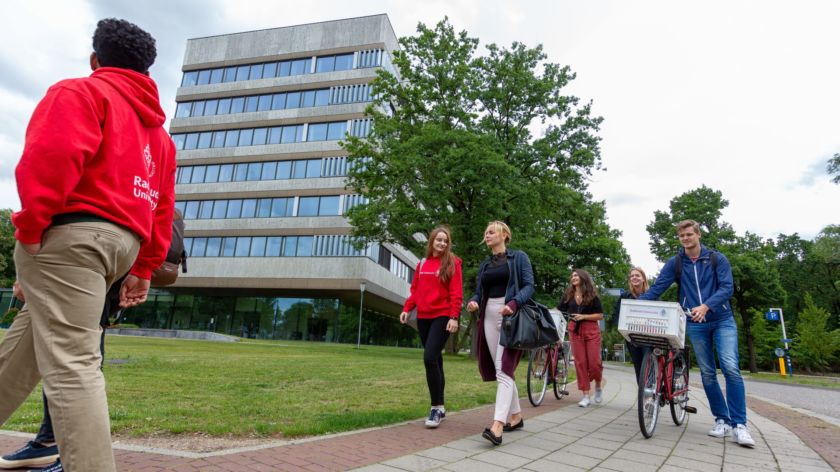‘An academic minor Dutch for international students’
-
 © Dick van Aalst
© Dick van Aalst
OPINION – Thom Teulings, who is a member of student party asap, thinks that international students should be able to take a minor Dutch at Radboud University. Reflection on our language and culture would contribute to the integration of this group of students.
Since last year, international students and staff members at Radboud University can participate for free in one of the two Social Dutch courses that are offered by Radboud in’to Languages. A sympathetic gesture, but more is needed for a multilingual and inclusive campus. The University Student Council recently sent a memorandum to the Executive Board, in which is called for a larger and cheaper range of Dutch language courses. Asap wants to take it up a notch and would like international students to be able to use their free-choice or minor space to master Dutch.
Internationalisation
According to asap, internationalisation is not about student numbers and more is not necessarily better; it must be an enrichment for the education of all students at Radboud University. The Strategy that Radboud University drew up last July after broad consultation fits seamlessly with our goal-oriented vision: an international and intercultural context is indispensable for the quality of education.
If the development of an international and intercultural context on campus is the goal, achieving a certain understanding of Dutch language, culture and communication is an essential means. Insufficient knowledge of Dutch is currently still a barrier for many international students to connect with Dutch students. In addition, finding a (part-time) job is difficult and joining a student organisation is not always considered to be easy and accessible. Expanding the (free) range of language courses is therefore a good starting point, and can be achieved on short term.
Academic minor
Now that the memorandum on language courses is sent to the Executive Board, asap is aiming its arrows at the development of an academic minor for international students. After all, an in-depth study of Dutch should not only be possible outside of the study programme. On the one hand, because a part of the international students indicates that they are reluctant to take an intensive extracurricular language course, but perhaps even more important: through an academic programme, language, culture and communication can be explored at a different level. That this combination is of added value is already reflected in the Bachelor’s and Master’s programmes in International Business Communication at the Faculty of Arts.
Other universities in Europe do offer international students the opportunity to gain an academic understanding of the national language and culture. Take KU Leuven for example, an important cooperation partner, where students receive credits for Dutch courses. With the arts departments Modern Languages & Cultures and Language & Communication, our university has all the required academic knowledge and skills to prepare a high-quality minor Dutch language, culture and communication. Close cooperation with Radboud in’to Languages seems logical.
Performance
Setting up optional Dutch courses for international students will not go without a hitch. Each faculty designs the minor space in a different way. It is important that courses from the minor can also be taken independently of each other, so that the offer is attractive for students from all different (study) backgrounds. The academic level must be monitored closely; after all, the minor is explicitly not a refined language course and should not become an “easy way out” when choosing electives. In the coming period, the current group members of asap aim to seek advice from the Faculty of Arts and other stakeholders and work on a memorandum, after which the ball will be in the court of the Executive Board. May this be the start of a successful process.



